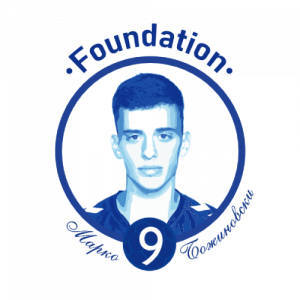1. Purpose The purpose of this policy is to provide clear guidelines for safeguarding and protecting young people engaged in our sports programs, particularly those from disadvantaged backgrounds. Our aim is to ensure a safe, supportive environment where young people can thrive, develop skills, and reach their full potential, free from abuse or harm.
2. Scope This policy applies to all staff, coaches, volunteers, contractors, and anyone working on behalf of the organization who comes into contact with young people through our sports and outreach programs.
3. Key Principles
- The welfare and safety of young people is the primary concern.
- All young people, regardless of their background or circumstances, have the right to be protected from harm, abuse, and exploitation.
- We recognize that young people from disadvantaged backgrounds may face additional vulnerabilities, and we are committed to providing extra support where needed.
- All staff, coaches, and volunteers are responsible for promoting a culture of safety, respect, and inclusion.
- We value and listen to the views of young people, ensuring their voices are heard in matters affecting their well-being.
4. Types of Abuse Young people may be at risk of different types of abuse, including:
- Physical Abuse: Deliberate physical harm, including the use of excessive force in sports.
- Emotional Abuse: Bullying, undermining a young person’s confidence, or creating an overly competitive environment that causes psychological harm.
- Sexual Abuse: Any form of sexual activity or contact with a young person, including inappropriate behavior or exploitation.
- Neglect: Failing to meet the basic needs of young people, including proper supervision, emotional support, or neglecting their health and safety.
- Financial Abuse: Exploiting or taking advantage of young people from disadvantaged backgrounds for financial gain.
5. Roles and Responsibilities
- Staff, Coaches, and Volunteers: Must be vigilant in recognizing signs of abuse, follow safeguarding procedures, and promote a safe environment. They must report any concerns immediately to the Designated Safeguarding Lead (DSL).
- Designated Safeguarding Lead (DSL): The DSL is responsible for implementing the safeguarding policy, receiving and acting on reports of concerns, and coordinating with external child protection services when necessary.
- Sports Coaches and Supervisors: Have a special role in ensuring that young people are safe during sports activities, ensuring that physical boundaries and safety rules are respected.
6. Risk Factors for Disadvantaged Young People Young people from disadvantaged backgrounds may face:
- Higher exposure to neglect or financial abuse.
- Greater risk of emotional abuse due to feelings of exclusion or poverty-related stress.
- Barriers to reporting abuse or seeking help, such as lack of trust in authority or limited access to resources.
We are committed to providing additional resources, mentorship, and guidance to support the well-being of these young people.
7. Reporting Procedures If anyone has concerns about the welfare of a young person, they must:
- Report the concern to the DSL as soon as possible.
- Record details of the concern, including any observations, conversations, or incidents.
- The DSL will review the situation and determine the appropriate next steps, including possible referral to child protection services, the police, or other relevant agencies.
8. Training All staff, coaches, and volunteers will receive regular safeguarding training, specifically tailored to working with young people in sports and those from disadvantaged backgrounds. Training will cover recognizing signs of abuse, appropriate conduct during activities, and how to respond to disclosures of abuse.
9. Confidentiality and Information Sharing We are committed to maintaining confidentiality when handling safeguarding concerns. However, the safety of the young person takes precedence, and relevant information may be shared with external agencies if necessary to protect them from harm.
10. Code of Conduct for Working with Young People
- Always treat young people with dignity and respect.
- Avoid situations where you are alone with a young person whenever possible.
- Ensure that all physical contact during sports activities is appropriate and necessary.
- Foster an inclusive, non-discriminatory environment where every young person feels valued.
- Be aware of the additional emotional, social, and physical needs of young people from disadvantaged backgrounds.
11. Monitoring and Review This policy will be reviewed annually or sooner if there are significant changes in legislation, best practices, or organizational needs. Feedback from young people and their families will be considered during the review process.
12. Contact Information
- Designated Safeguarding Lead (DSL): Riste Bozhinovski
